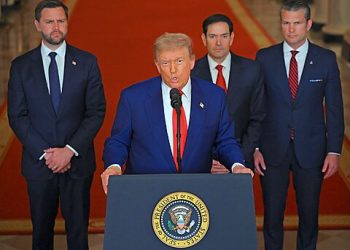Each of us has experienced the pandemic in our own way, both the negative and positive aspects of working from home and isolation from workmates and clients.
Without the face-to-face contacts from my consulting, teaching, and speaking activities, this period has enabled me to reflect on my years of travel and business adventures. After posting some recollections on social media, I was encouraged by colleagues to publish a book of short stories each with the lessons I have learned from those experiences. “Exploding Turkeys and Spare Trousers, Adventures in global Business” is now available in paper http://getbook.at/ETASP eBook, and audiobook.
In writing the book, I have arrived at three crucial capabilities every leader must demonstrate, especially in the uncertain world ahead of us. A leader must be an effective Communicator, create a collaborative Culture, and role-model the Character they expect others to follow.
Effective COMMUNICATION is Vital
At a recent virtual speaking engagement, I was asked what the most crucial skill any leader must have. I thought this was not a fair question, given the complex task involved in leadership, especially in the difficult environment we have experienced this past year. I offered an answer that included more than just one skill mentioning the importance of authenticity, empathy, and vision.
If pressed to choose one capability a leader needs to succeed, however, I said it would be an effective communicator. Great vision, poorly communicated to stakeholders, will not get results. A well-conceived competitive strategy without employees understanding the company’s purpose and their role in meeting the mission, will not get their buy-in and enthusiasm.
Communication is about reaching out to people in a way they can unambiguously understand your message, relate to it, and act to achieve common goals.
Communication, in the words of Sir Peter Ustinov, writer and filmmaker, “is the art of
being understood.”
But it is not just about speaking. Leaders need to listen actively.
To deliver on vision, mission, and values – great leaders build relationships inside (up, down, and across) and outside an organization where everyone understands and buys-in to the business’s purpose. High performance becomes a team effort.
And effective teamwork is about open and honest communication. In the best case there is a meeting of minds and utilization of diverse skills to achieve common goals.
While transforming from a group of individuals into a team, interestingly, it is impossible not to communicate. Everything we do, and sometimes things we do not do, conveys a message. People are not mind readers so our words, nonverbal signals and our actions are how we create the bonds for effective working relationships.
A key to this constructive flow of information is listening. Bernard Baruch, one of 20th century America’s richest and most powerful statesmen said, “Most of the successful people I’ve known are the ones who do more listening than talking.”
A Collaborative Corporate CULTURE is crucial
Digital transformation, agile mindsets, and responses to Covid 19 have made the need for adaptability and change of paramount importance. Much is written about creating the organizational culture that can survive during difficult times and strive after.
Change is a constant imperative in any dynamic organization. The environment in which a business executes its strategy is never static. Forces that impact the market arise from the economic situation, new regulation, technology change, political developments, and of course the market itself. If a business does not continual change and adapt, it is doomed to fall behind the competition.
The pandemic has dealt a serious blow to many businesses. The culture a company has nurtured to weather this storm and then grow from it will determine its future, more than any strategic plan or budgeting exercise. We have all heard Peter Drucker’s “Culture eats strategy for breakfast.”
In the 1990’s Lou Gerstner turned around a giant corporate ship that was faltering. His takeaway from the experience, “The thing I have learned at IBM is that culture is everything.”
This was true in the past, true today, and will be true in future.
CHARACTER: Your Credibility and Integrity are non-negotiable
My very first day as a trainee, a senior officer gave me this advice, “No matter what you do, always be professional.” I had no idea what that meant. My long business career has been a process of determining my own sense of what it means to be a ‘professional.’ Here is what I think.
Every day you are filling a reservoir of CREDIBILITY that derives from your choices, decisions, and significantly, your actions. Your credibility as seen by others – are you reliable, dependable, authentic, etc. – is built on your INTEGRITY, which in turn is determined by adherence to your own personal values and beliefs.
One sees all too often in life and in the media that if you do something considered terribly inappropriate or even make a misguided comment, your hard-built credibility can be destroyed in a moment.
Every interaction with bosses, peers, employees, clients, and suppliers feeds the depth and breadth of that CREDIBILITY reservoir. And one’s behaviors reflect your INTEGRITY.
Formula 1 teams have many stakeholders, are incredibly detail oriented, and their time frames are counted in milliseconds. So, I offer this quote from Toto Wolff, Team Principal of the remarkably successful Mercedes Formula 1 team,
“There’s just no millimeter of margin for a lack of integrity.”
Ken Pasternak
Speaker, Author Educator, Brand Ambassador
https://www.linkedin.com/in/kenpasternak1
Read more:
The Three C’s of Effective Leadership Communication, Culture, Character
















